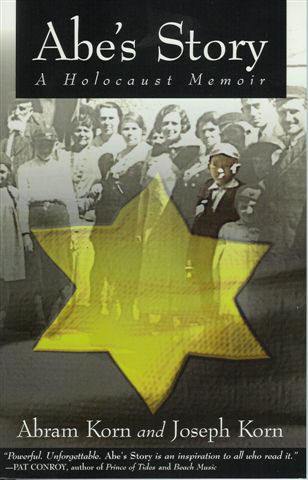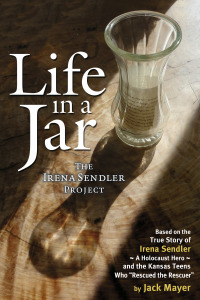Living in Hungary in World War 2 shows the rise of anti-semitism via laws in support of Germany before the start of the war.

In May 1938 and May 1939, Admiral Horthy’s government enacted anti-semitic laws which limited Jewish representation in a variety of professions.
But despite the anti-semitism of the government, the right-wing movements and the Christian churches, most Hungarian Jews continued to live in safety and the fascists were held at bay for a few more years.
Meanwhile, Hitler aggressively pursued military expansion towards the east, aiming to establish the predominance of the “aryan” race in Europe.
After Germany’s complete takeover of Czechoslovakia and invasion of Poland in 1939, Great Britain and France declared war on Germany.
Hungary in World War 2: The War Begins
When World War II officially broke out in the fall of 1939, Father was recalled to his old unit, to some camp in the countryside.
A new decree declared that Jews were no longer allowed to serve as armed soldiers in the Hungarian army; rather, they were to serve in work battalions led by Hungarian officers and managed by low-ranking Hungarian soldiers.
Jews continued to wear army uniforms, but they had to also wear armbands that identified them as members of the Jewish work units and they weren’t allowed to carry arms.
These regulations were part of a second wave of anti-semitic laws which further limited Jewish participation in the cultural and business life of the country. This was deja vu for our family.
Mother ran the store on her own, and David and I spent long hours helping (or maybe hindering) her and waiting for irregular, unexpected visits from Father who managed to weasel or buy his way out of the camp for short furloughs.
In his green soldier’s uniform, he looked skinny and unhappy. Mother tried to feed him well and send him back to camp with enough food to last at least a few days.
As Father didn’t tell us stories about his experiences in the army, we never knew how well or badly he and the other Jews were treated. He asked all about our schooling and how we managed at home, but he never told much about himself.
Boy Scouts
Like my brother David, I belonged to the Boy Scout movement. It was practically mandatory to be a Cub and wear the uniform on certain days to school, to show that you were a good little Hungarian.
As boy scouts, we read stories about our great ancestors; we sang the Hungarian anthem “God Bless the Hungarian” while saluting the flag; we exercised; and we camped out, lighting campfires and singing patriotic songs about the poor oppressed Hungarians who we would one day liberate.
One of the things the Boy Scout movement did was collect scrap metal which was later melted down and used to make tanks and weapons.
I was one of the enthusiastic little boys who scoured the neighbourhood for scrap metal and proudly dragged it back for the cause: for the cause of the German victory.
Although I was Jewish, I very much identified with Hungarian culture and bought into Hungarian propaganda.
Visit to the Village in Hungary in World War 2

In the summer of 1940, Mother and I travelled to Budszentmihaly, the village where she was born. By that time, Jews travelled very little as it had become unsafe.
Jews were frequently attacked by Christian travelers or by the gendarmes who “guarded” the train stations. But Mother and I didn’t look Jewish, we spoke Hungarian and German well and we carefully concealed our true identities.
Nevertheless, we were fearful throughout our journey. I had to sit quietly, without running around or talking to anyone. The trip was extremely long and boring!
We stayed with Mother’s childhood girlfriend and her parents. They were warm-hearted peasants who welcomed us into their home and set out to fatten me during our stay.
Mother’s old school chum, Sari Juliska, was an important person in the village as she was the postmistress and she owned the only tobacco store.
In the few weeks we spent there, I divided my time between hanging around the tobacco store in the heart of the village, and stuffing myself with fresh fruit, picked off the trees in the courtyard.
Village life fascinated me: the chickens wandering around, the roosters waking us up at dawn, and the fresh fruit that hung from the trees, begging to be picked.

I was sternly warned not to reveal we were Jewish to anyone, not to talk to strangers, and whenever I saw gendarmes from the distance, to cross to the other side of the road.
I feared those gendarmes; they looked menacing and cruel to me even though I didn’t truly understand the threat they represented.
We had relatives living in that village. I vaguely recall visiting a frightened older couple in their home. We went there cautiously and made sure that no one saw us entering or leaving their house.
They told Mother in hushed tones about how badly they were treated, as one of the few Jewish families of the village.
They owned the local flour mill and had gentile customers who sometimes refused to pay them and had, on occasion, physically assaulted them.
But they had to continue serving these customers in order to avoid a visit by the dreaded gendarmes. I found this all very confusing and didn’t see what any of it had to do with us.
That was the last time we saw those relatives. They were among the victims of the 1944 summer deportations to Auschwitz.
German Aggression Continues
In August 1940, following the partition of Poland between the Nazis and the Soviets, Horthy was once again called upon to express his support of Nazi Germany.
The reward was not long in coming: Transylvania. This large, mountainous region, with some one million Hungarians forming the majority of the population, had been given to Romania after World War I in the Trianon Peace Treaty of 1920.
In 1940, Hungary went to “liberate” the oppressed and reoccupied the region.
Father was called up to participate in this campaign and returned shortly afterwards, shortly after my eighth birthday. But not for long. The international jockeying continued, with Germany making more and more demands.
This time it was Yugoslavia. When Father returned home, he never talked to us about his military exploits but we heard him telling mother in hushed tones about the last campaign.
Antisemitism was now rampant in the army and Jewish servicemen were subjected to every kind of humiliation and physical punishment.
I didn’t know what Father’s personal experiences were but he looked taut, pale and tense.
Our family intensified efforts to obtain American visas.
Letters went back and forth to New York, but the only tangible evidence we had of our family there were pictures showing fat, smiling, content people, wearing fancy fashions we had only seen in the movies, leaning on a large, shiny car.
With their careless, carefree, self-satisfied smiles, our American relatives looked to us as if they were living on the moon.
Horthy, Miklós (1868-1957): Born in 1868, Miklós Horthy was the regent of Hungary between 1920 and 1944. He was the military leader of the “White Terror” of 1919, a counterrevolutionary campaign against the socialist regime of Béla Kun.
After the occupying Romanians were evacuated, Horthy became regent of Hungary on March 1st, 1920.
Foreign and domestic policies between the wars were motivated by a fervent desire to recover territories the country had lost in the Trianon settlement of 1920.
Although Horthy authorized a series of harsh anti-Jewish laws, he resisted Hitler’s pressure to ban Jews from all economic activities, to gather Jews into ghettos or to deport Jews to camps.
After German forces occupied Hungary in March, 1944, Horthy nominated a pro-German government that was given total control of anti-Jewish measures.
On July 7th, after half a million Jews had been deported and under pressure from Allied countries such as Sweden and the United States, Horthy ordered that the deportation of Jews stop.
When Horthy attempted a separate armistice for Hungary on October 15th, 1944, he was ousted and replaced by Ferenc Szálasi. After the war, the allies allowed Horthy to go to Portugal.
Trianon Peace Treaty: An agreement signed at the end of World War I in Versailles. Hungary lost roughly 2/3 of its territory and 3/5 of its population.
It lost large territories to Czechoslovakia, Romania and Yugoslavia, and smaller ones to Poland, Austria and Italy.
Related Hungary in World War 2 Story
Shauna Hoffman Podcast “I Saw the Child in My Mom” | Hungary Holocaust Survivor



